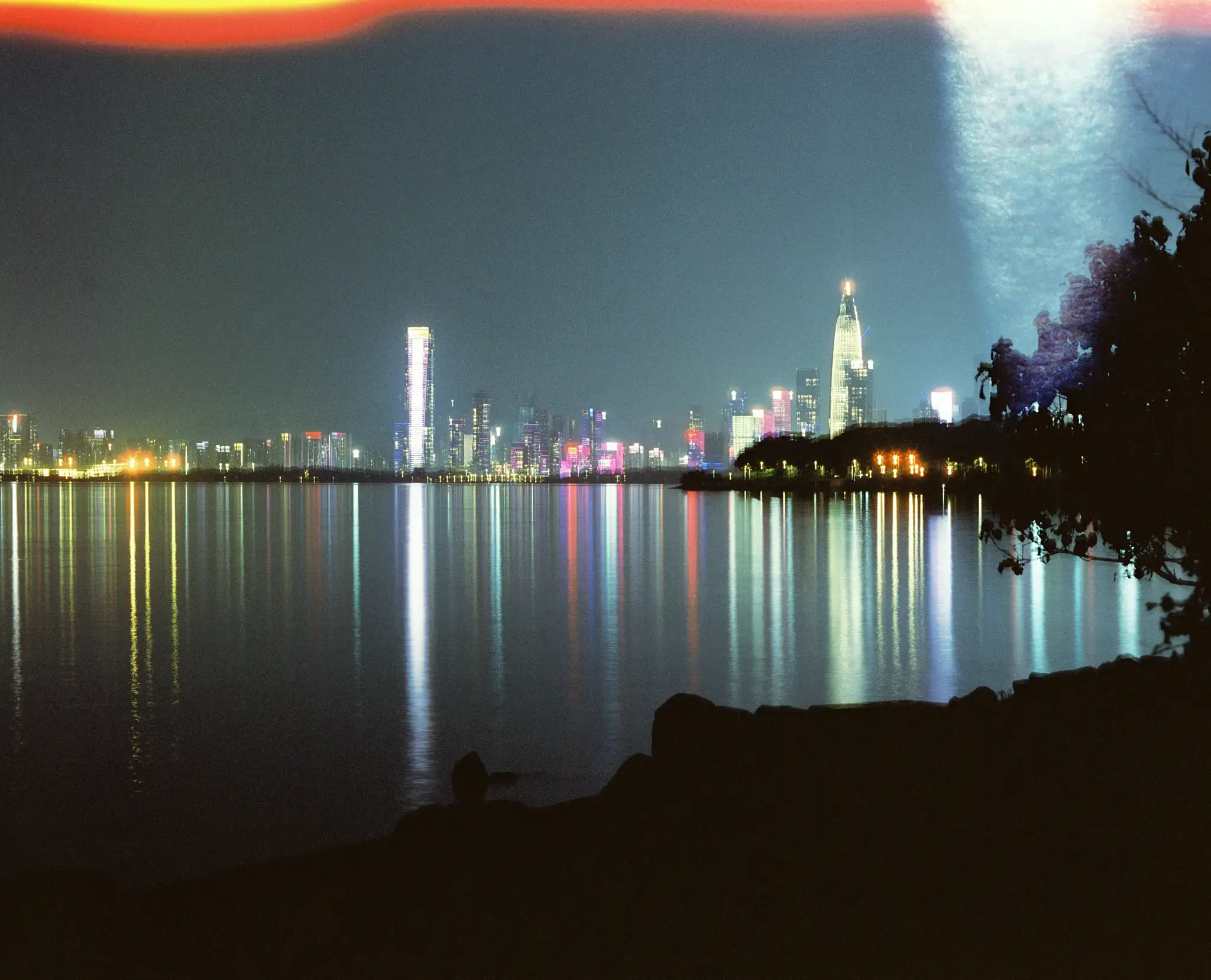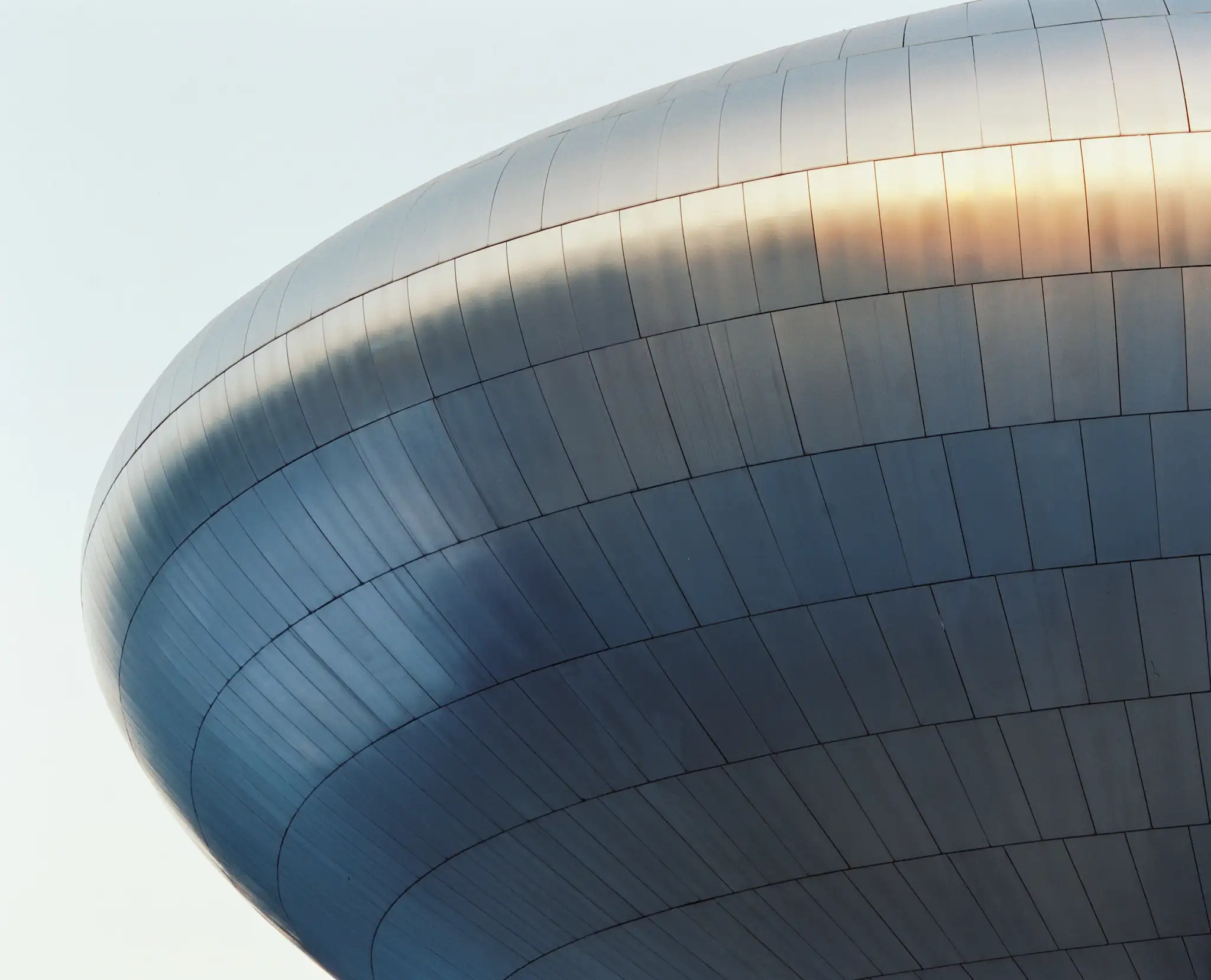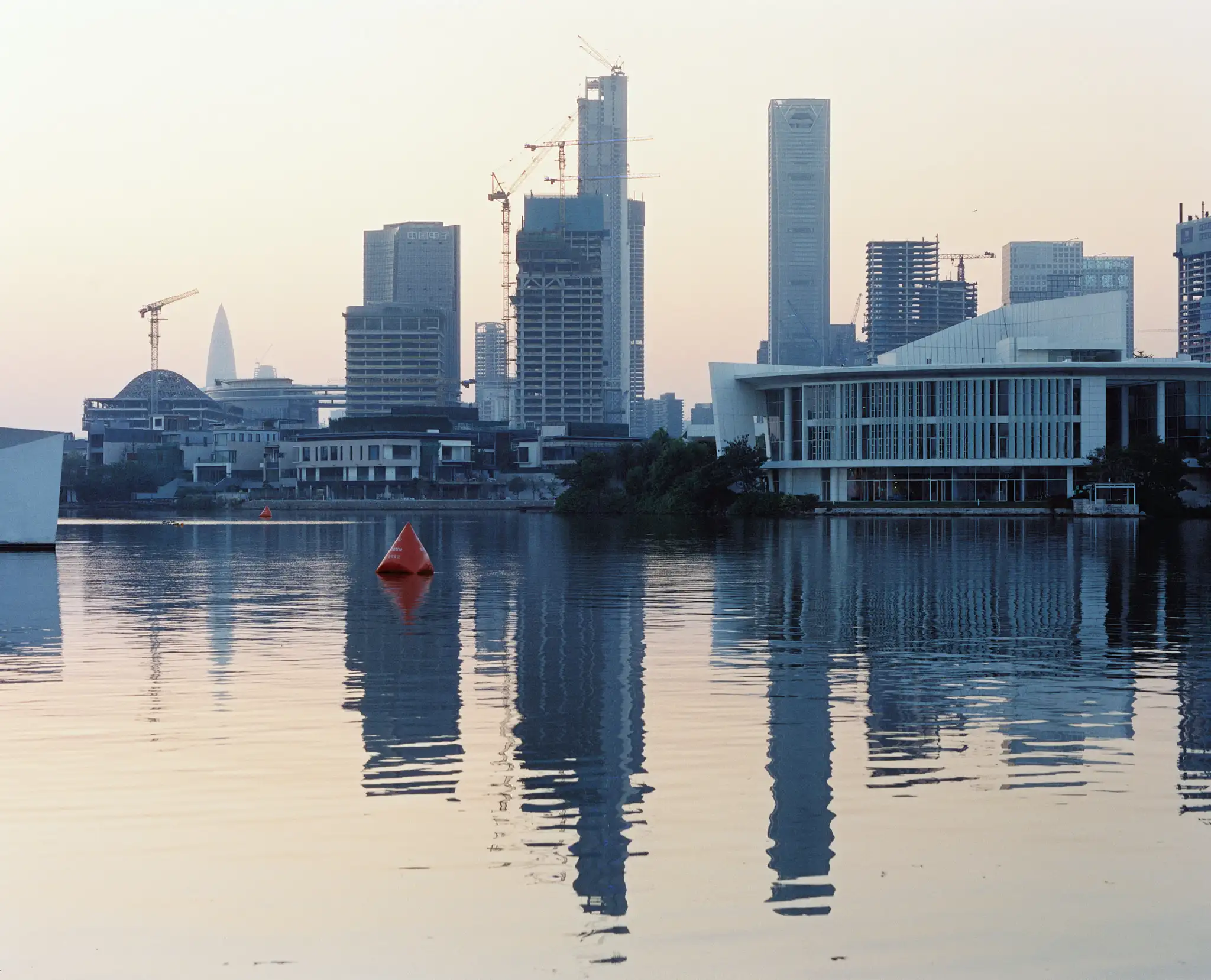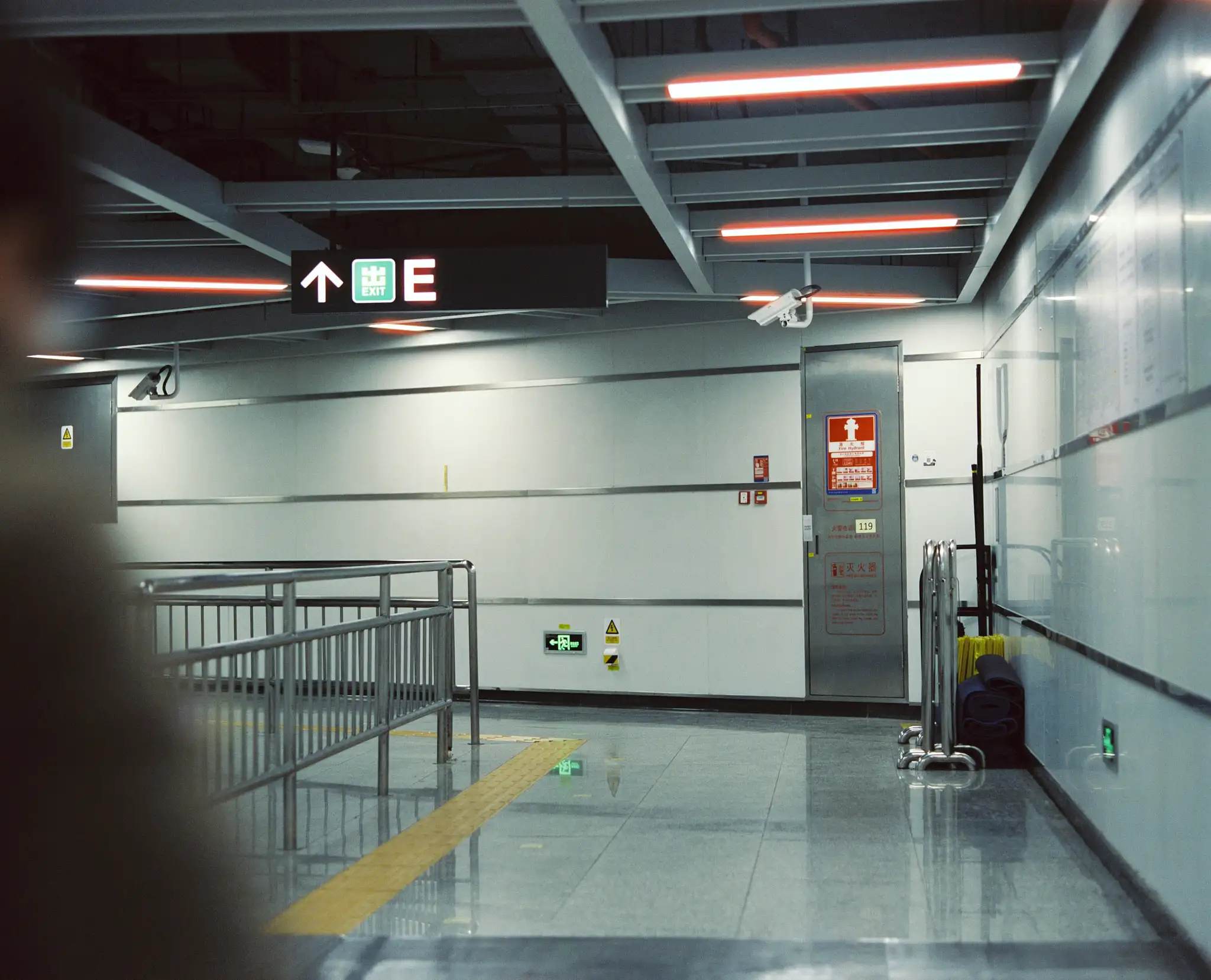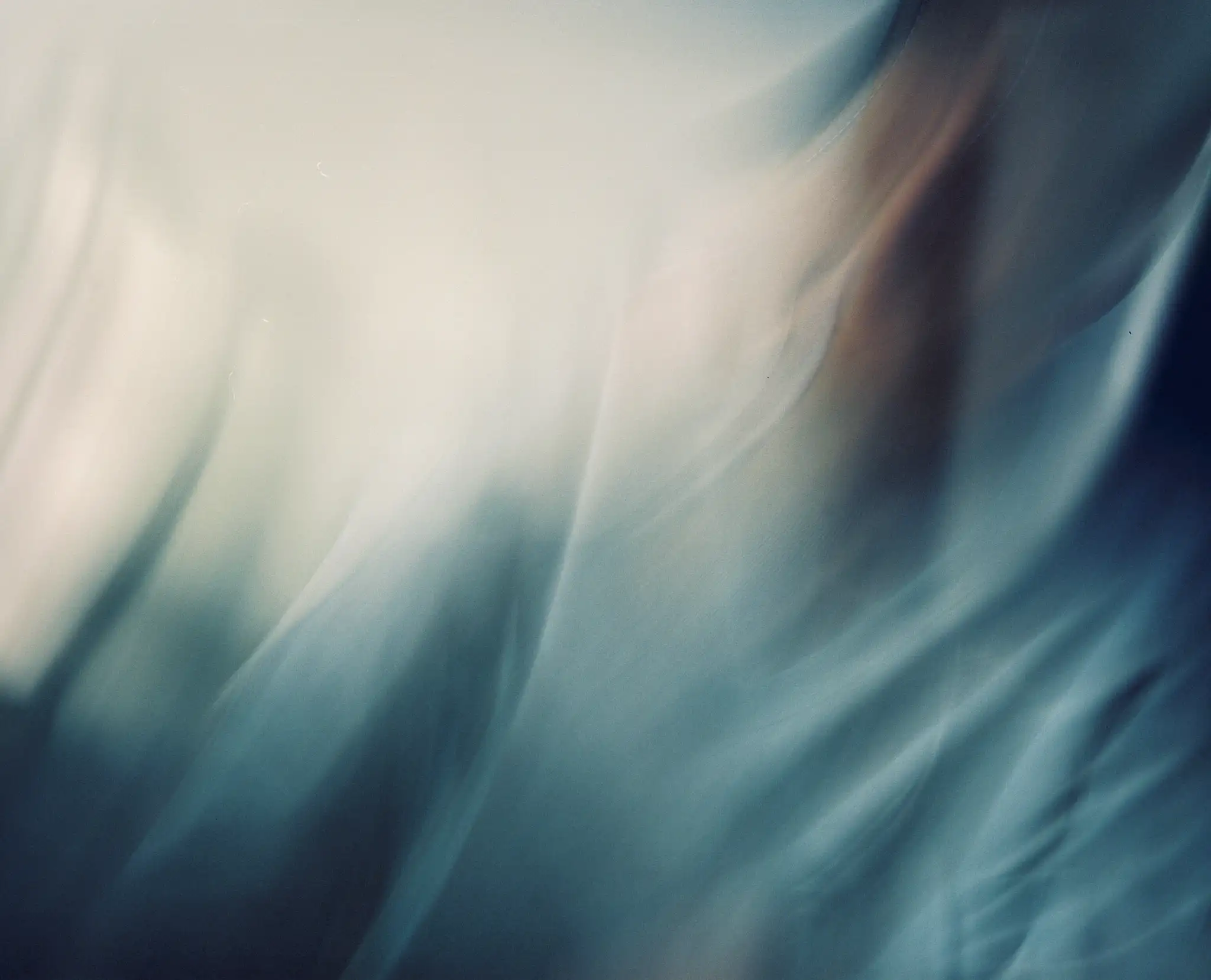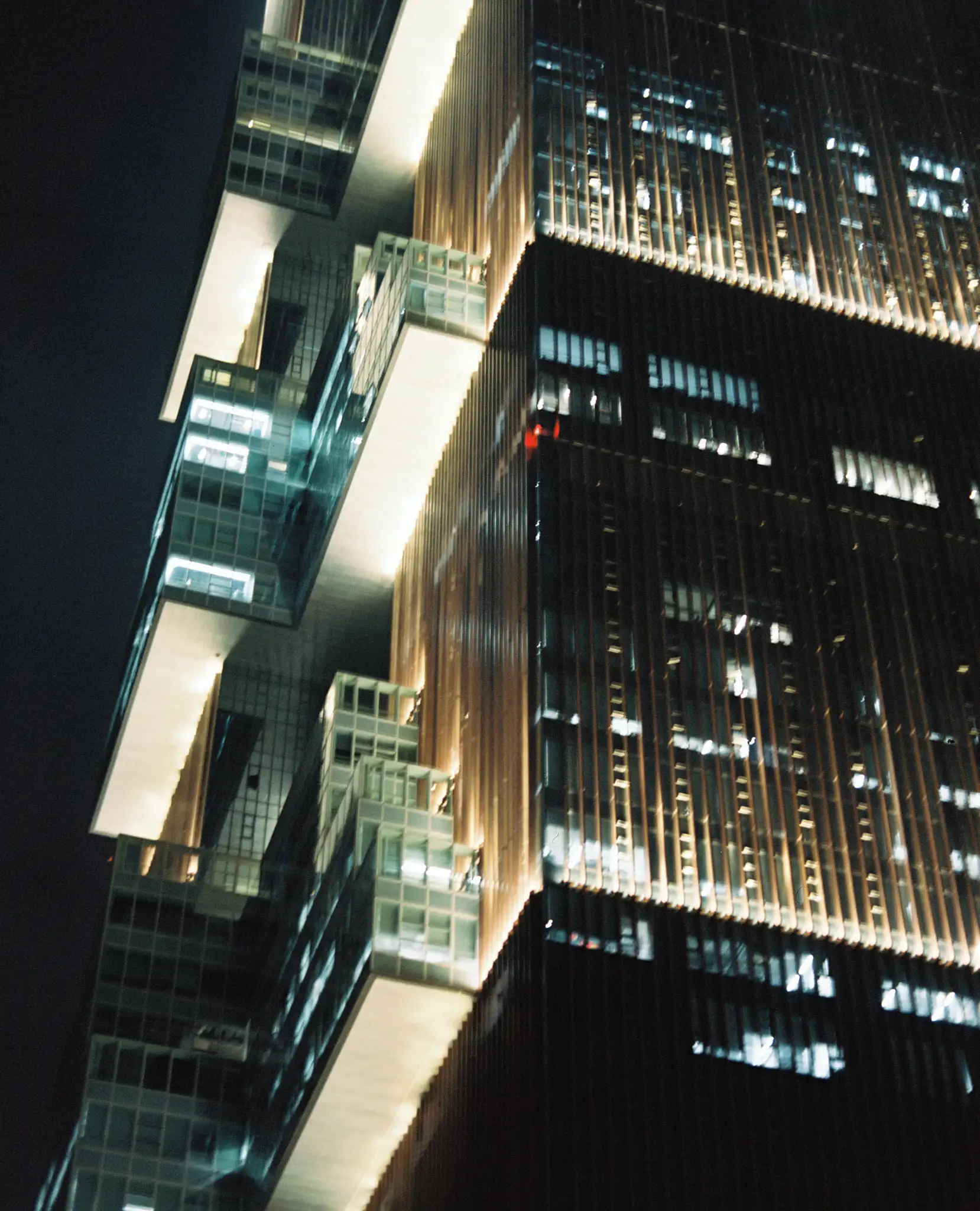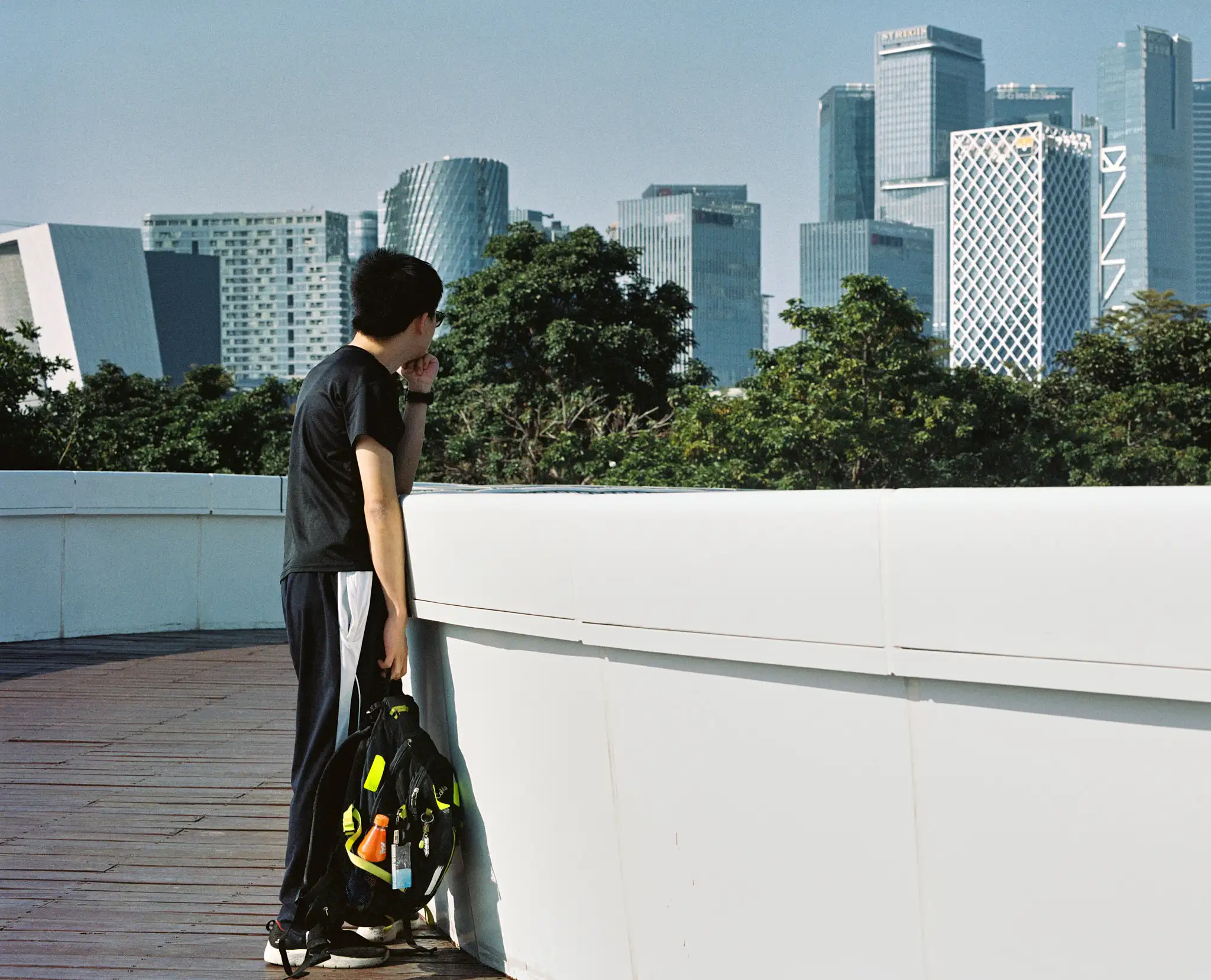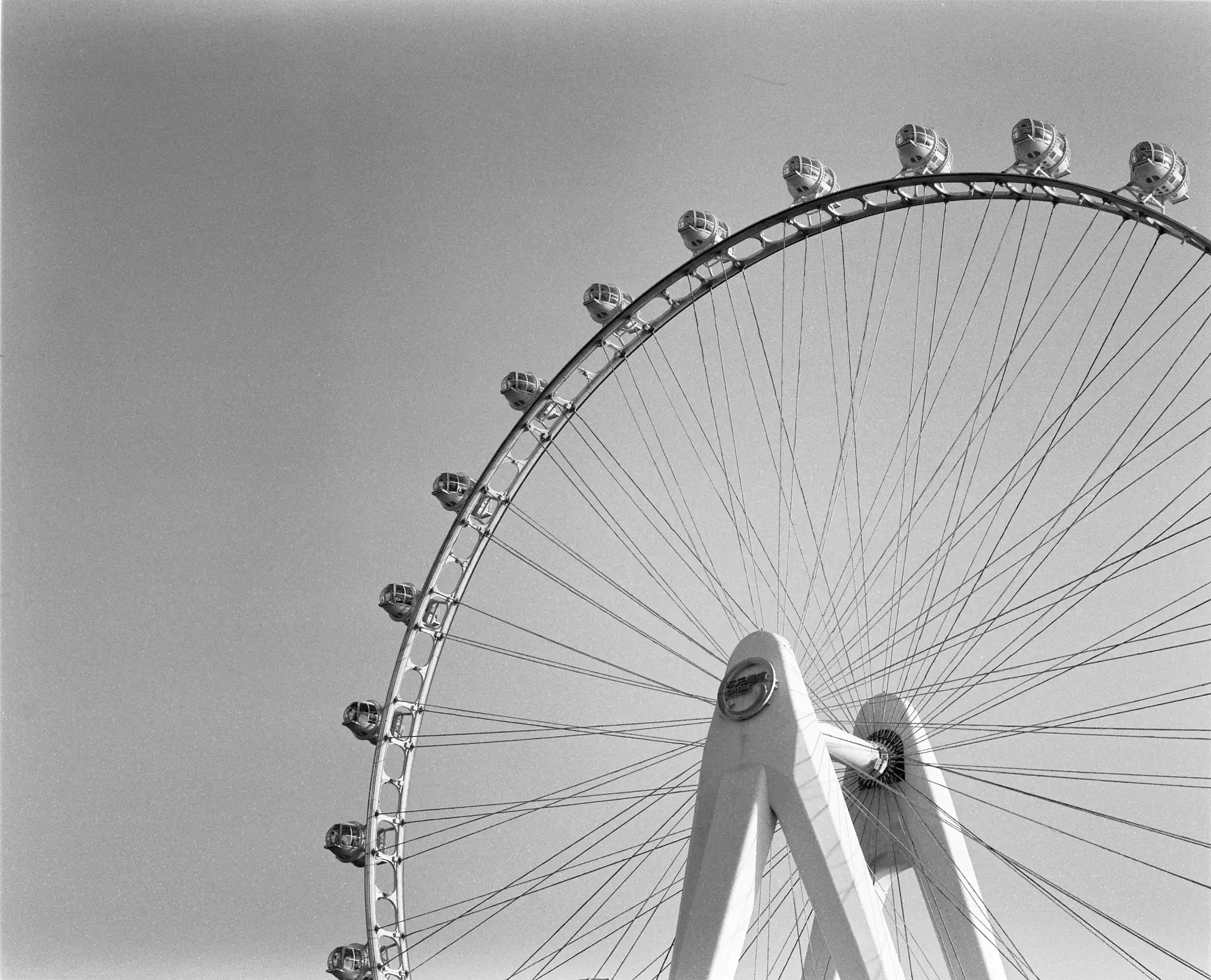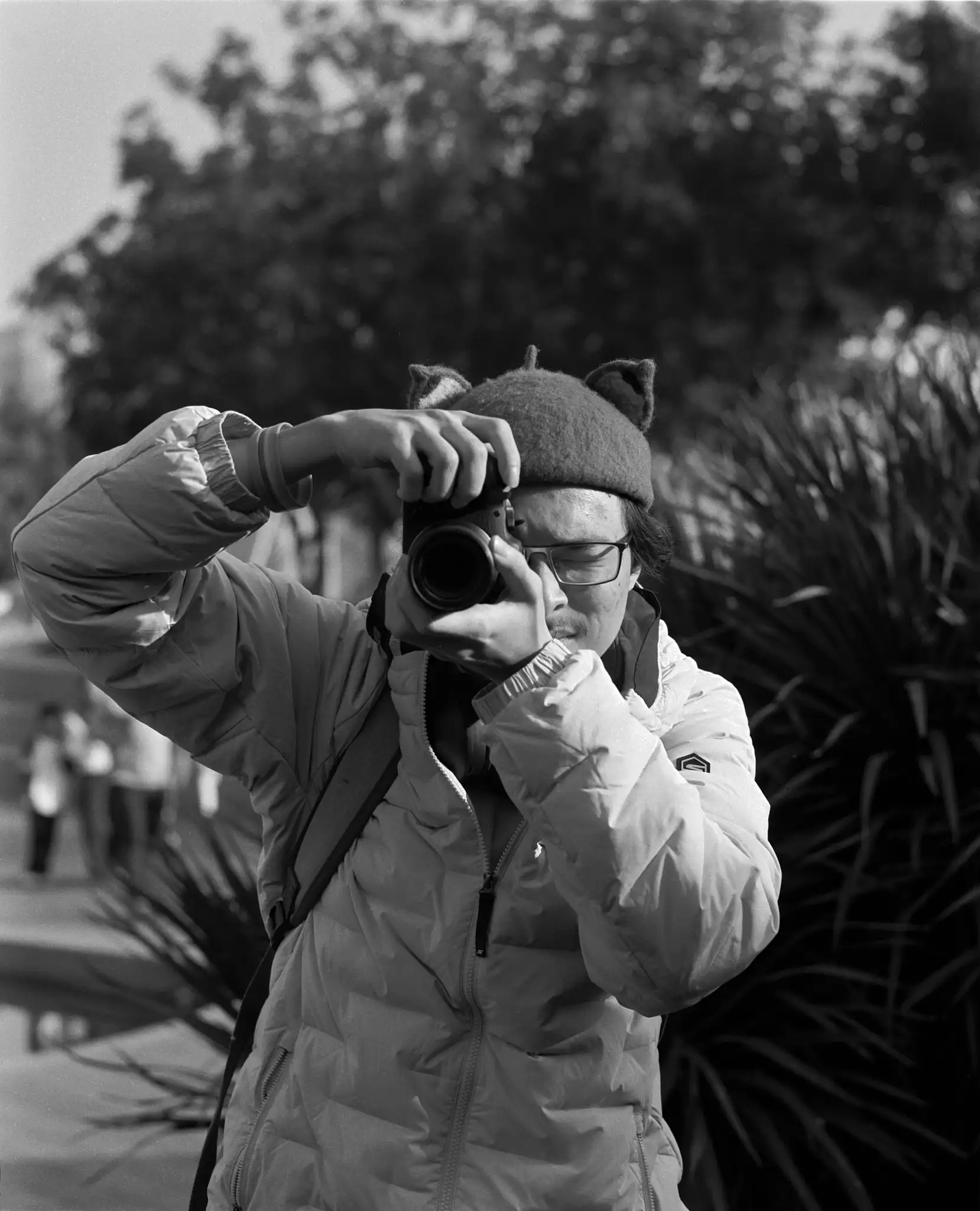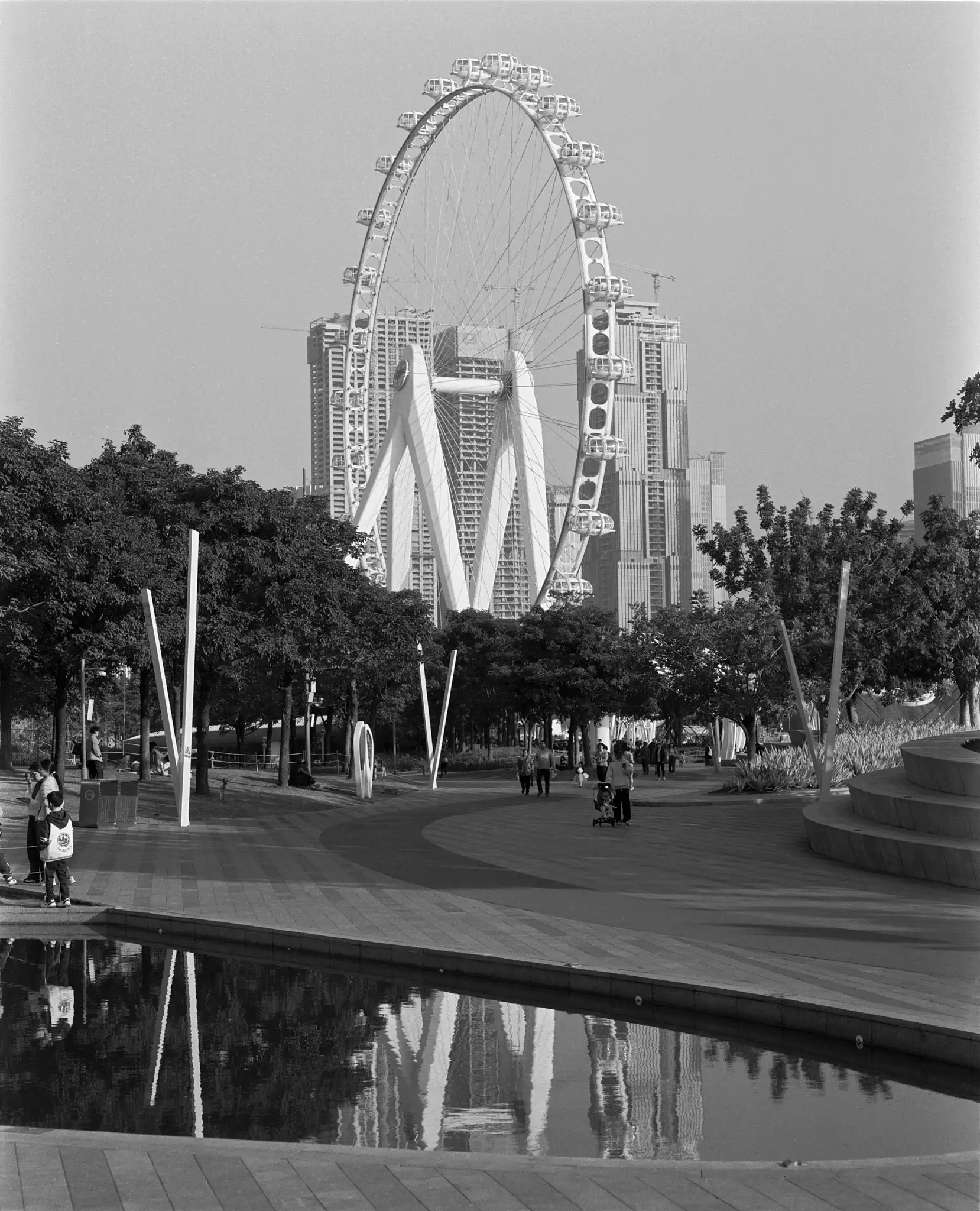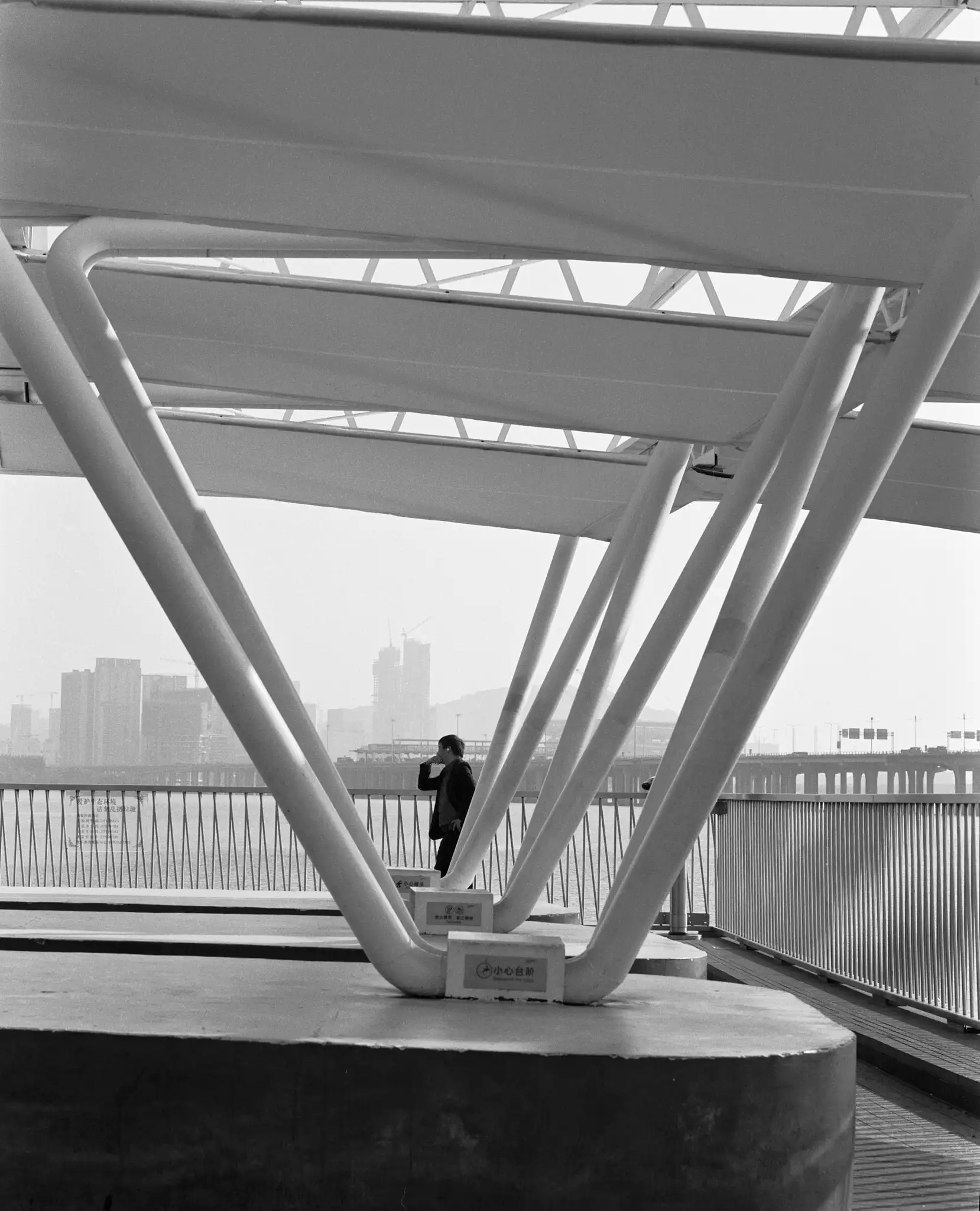My New Year trip to Shenzhen was another photography trip. Alongside catching up with friends on a tight schedule, testing my first roll of CineStill 800T became a side mission. I also brought along a roll of expired Kodak Portra 400 and ILFORD HP5 Plus, as they had been sitting in my fridge for quite some time.
Cinestill 800T
The film isn’t a brand-new release; I heard about its big name from lots of film photograph KOLs at least 3 years ago. This film is basically Kodak’s Vision 3 5219 (500T) movie film. A distinctive feature of movie film is it comes with a Remjet layer, a black carbon coating designed to prevent light halation. which is a layer of black carbon coating (calls remjet) on the back of the film to prevents light halation. Traditionally, the film with a remjet layer require one extra step during develop process to remove it.
What CineStill has done is buy the film from Kodak and pre-move the remjet layer, so this film can be developed with normal C-41 process (a widely adopt process for color film). But as an result, the film will have a unique halation effect, especially around the edge of the light source, which is the signature of this film.
Another noteworthy aspect is that this film is tungsten-balanced (that is where the 800T represent), this means it is designed for tungsten light (~3200K warm light). The film will have a blue cast under daylight, Plus it is an 800 ISO high-speed film, which create a great combination for night scene. A similar film I can think of is the discontinued Fujifilm PRO400H. While it wasn’t tungsten-balanced, but it is a 400 ISO film and its tendency to produce a blue, cool tone in daylight resulted in a similar color aesthetic. I used to use it for night scene photography.
The ten photos above are the results of my shoot. The shooting time was roughly between 5 PM and 8 PM. From the two outdoor evening photos, it’s evident that when the frame includes large areas of soft highlight, the distinctive red halation caused by the removal of the Remjet layer doesn’t appear. The images don’t exhibit an overly stylized color shift due to the tungsten balance. What stands out instead is the natural and pleasing color transitions, as well as the sharpness of the image.
Next, the photos taken at the DJI & Hasselblad Store in Shenzhen OCT Harbour begin to reveal the unique charm of this film. You can see the reddish-orange halation in the highlights, which, when appearing in the background, can be a delightful touch. Unfortunately, the subjects in my shots weren’t particularly eye-catching, so the overall composition feels a bit dull.
The last two photos were taken at night, with exposure times exceeding 1 second. To account for reciprocity failure, I done a seconds exposure. Surprisingly, the moon in the frame turned out beautifully. This coincided with the astronomical event of Saturn’s close approach to the moon, which was captured clearly on film.
Expired Kodak Portra 400
I always says, the best investment I have made is buying film. In 2019, a roll of Kodak Portra 400 cost me 48 RMB (6.55 USD according to 2025 CNY-USD exchange rate). Now, the price is 122 RMB (16.66 USD) with a turnover rate of 250%.
The film I used this time was a roll of Portra 400 that expired in mid-2021. Film storage, when kept in a refrigerator, generally extends its lifespan. According to Kodak’s datasheet, it is recommended to store film in an environment between 2–13°C with a humidity level of 30–35% (interestingly, I only realized after reading the datasheet that the recommended temperature doesn’t include sub-zero storage).
The situation with this roll is a bit more complicated. After I purchased it, it was likely stored at room temperature until the end of 2022, when I transferred it to the refrigerator. It wasn’t until mid-2024 that I vacuum-sealed it and moved it to the freezer. My personal guess is that some degradation may have occurred, but not significantly. Therefore, I decided to shoot it with a +2/3 EV adjustment to compensate.
Judging from the results, the decision on metering seems to have been quite accurate.
I also shot a roll of ILFORD HP5+, which was also expired. However, black-and-white film is far less affected by expiration compared to color film. I’ll just post the results here. Some of the photos were taken by Andrin Jian.
